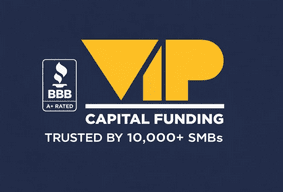Choosing a business funding provider is no longer just about finding capital—it’s about finding the right structure, timing, and partner to support how your business actually operates. With dozens of funding options now available, business owners must look beyond surface-level promises and understand how different providers align with their goals, cash flow, and growth stage.
A misaligned funding decision can restrict operations just as much as underfunding. The right provider, however, can unlock flexibility, momentum, and long-term stability.
Why the Funding Provider Matters More Than the Funding Amount
Many business owners focus on how much capital they can access, but experienced operators know that terms, structure, and provider behavior matter far more than headline numbers.
Key differences between providers often include:
-
Speed of approval and funding
-
Repayment alignment with cash flow
-
Flexibility during seasonal or revenue fluctuations
-
Transparency around total cost and exit options
Understanding these differences helps businesses avoid capital that looks helpful upfront but becomes restrictive over time.
👉Explore- https://vipcapitalfunding.com/what-to-know-before-choosing-a-business-funding-provider/
Evaluating Repayment Structure and Cash Flow Compatibility
One of the most overlooked factors when choosing a funding provider is how repayments interact with daily operations. Fixed monthly payments may work for stable revenue models, while cash-flow-based structures can offer more adaptability for businesses with variable income.
Business owners exploring broader business funding options for growing companies often find that providers offering flexible repayment models allow them to maintain operational breathing room during growth phases or market shifts.
Transparency, Support, and Long-Term Relationship Value
A strong funding provider acts as more than a transaction point—they function as a strategic partner. This includes:
-
Clear communication around terms and expectations
-
Ongoing support beyond initial funding
-
Options for restructuring or refinancing if business conditions change
Reputable providers also maintain visible trust signals, including verified reviews and third-party validation, helping business owners make informed decisions with confidence.
Matching Provider Type to Business Stage and Industry
Not all funding providers serve businesses the same way. Industry, operating history, and growth trajectory all influence which provider is best suited.
For example:
-
Early-stage or fast-scaling businesses may prioritize speed and flexibility
-
Established businesses may focus on cost efficiency and longer-term stability
-
Industry-specific risks can influence underwriting criteria and structure
Understanding how industry dynamics impact funding decisions allows business owners to select providers that truly understand their operating environment.
Avoiding Common Mistakes When Choosing a Funding Partner
Some of the most common pitfalls include:
-
Selecting providers based solely on approval speed
-
Overlooking early payoff or restructuring options
-
Ignoring how stacked funding affects future eligibility
By evaluating providers holistically, businesses protect both short-term liquidity and long-term growth potential.
Choosing a Provider That Supports Both Growth and Stability
The most effective funding providers offer solutions that adapt as a business evolves—whether that means expansion, optimization, or restructuring. Businesses that anticipate future needs and choose partners accordingly are better positioned to navigate economic shifts and seize opportunities when they arise.
For many owners, understanding how businesses evaluate funding risk and flexibility becomes the deciding factor between reactive borrowing and strategic capital planning.
Related- https://thesiliconreview.com/2025/11/quick-capital-funding-approval
How to Compare Business Funding Providers Effectively
Before selecting a funding provider, business owners should evaluate how each option supports both immediate needs and longer-term flexibility. The most effective providers align capital structure with operational reality—not just approval criteria.
When assessing providers, experienced operators often review:
-
How repayment terms respond to revenue fluctuations
-
Whether funding structures limit or enable reinvestment
-
The provider’s ability to support future growth phases
Businesses planning expansion, including cross-border or multi-market growth, frequently prioritize providers that understand evolving operational complexity and capital timing requirements. Insights into these expansion paths are increasingly shaping how businesses evaluate funding relationships, particularly as outlined in broader discussions around paths to expanding your small business internationally.
To avoid misalignment, business owners benefit from reviewing what to know before choosing a business funding provider, ensuring decisions are based on structure, transparency, and long-term compatibility rather than speed alone.
Just as important, working with a provider that maintains strong client feedback and service accountability can reduce friction throughout the funding lifecycle. Reviewing verified client experiences offers additional clarity when narrowing down options.
➡️ View verified experiences here:
https://vipcapitalfunding.com/reviews/
Conclusion: Making a Confident, Informed Funding Decision
Choosing a business funding provider is one of the most consequential financial decisions a business owner can make. By prioritizing alignment over speed, structure over surface-level offers, and partnership over transactions, businesses set themselves up for sustainable success.
The right provider doesn’t just supply capital—they support smarter decisions, healthier cash flow, and long-term momentum.


